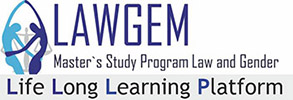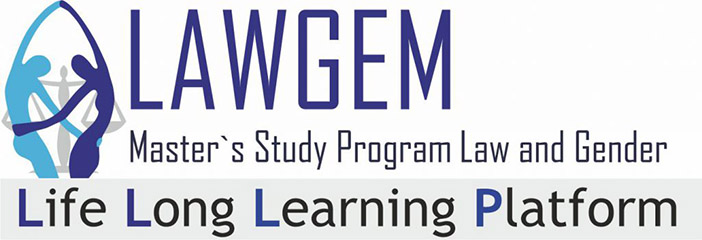The general aim of this paper is to initiate a long-lasting systemic process of reviewing higher education in Serbia from a gender-sensitive point of view, and to offer initial input for building action plans and policies oriented towards this goal. The main focus is on analyzing legal studies from a gender-sensitive point of view and on initiating gender mainstreaming within law schools. However, this paper can aspire only to modest achievements, dealing solely with preliminary research of legal studies, with a limited but a representative sample. Namely, only two accredited study programs at two public university faculties of law in Serbia – at the Faculty of Law in Belgrade and the Faculty of Law in Niš – were taken into consideration. This pilot analysis is based on an established methodology for gender-sensitive analysis of curricula as well as of syllabi and textbooks for certain legal courses. The mentioned methodology introduces specific gender-sensitive indicators as well as three categories for assessing learning outcomes of study programs, syllabi and textbooks: gender-negative, gender-neutral, and gender-sensitive. The focus of the investigation was on of the following courses: Sociology of Law, Constitutional Law, Family Law, Labor Law, and Criminal Law. The meaning and importance of gender mainstreaming in law schools is explained in the Introduction. The normative and strategic framework for gender mainstreaming in higher education in Serbia is presented in the second chapter. The main focus of analysis – the reconsideration of curricula and textbooks from a gender perspective – is elaborated through the following three chapters: the third chapter explores the main indicators of the gender-sensitive analysis of legal education; the fourth is devoted to the analytical framework and methodology of investigation; chapter five presents the research results and their interpretation. The concluding notes clarify discrepancies between the normative and strategic international and national framework for gender mainstreaming of higher education, on the one hand, and the given state of affairs in Serbian legal education, on the other. The text includes recommendations for gender action plans, which could contribute to the improvement of legal and higher education in general.
GENDER MAINSTREAMING IN LEGAL EDUCATION IN SERBIA: A PILOT ANALYSIS OF CURRICULA

